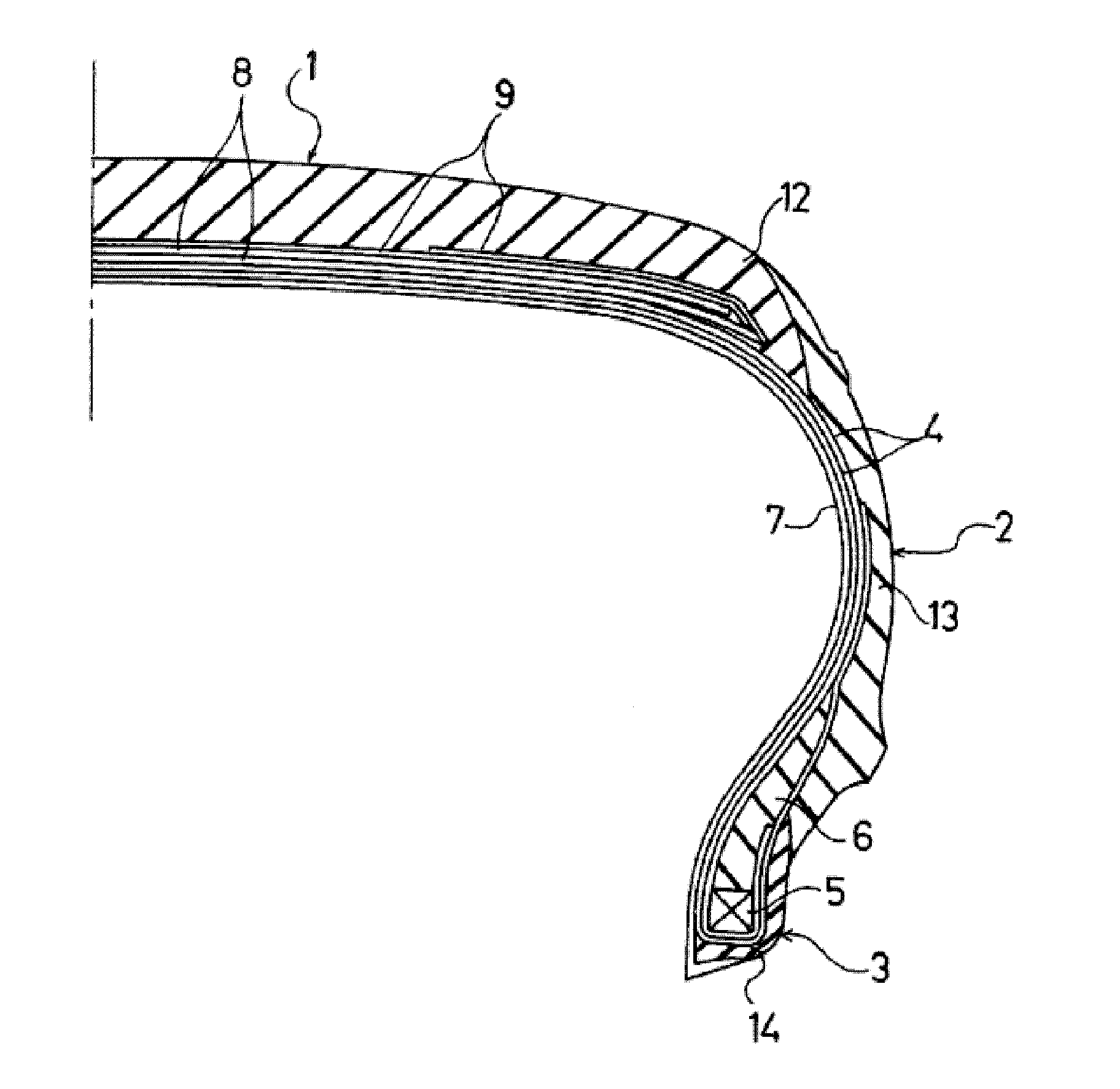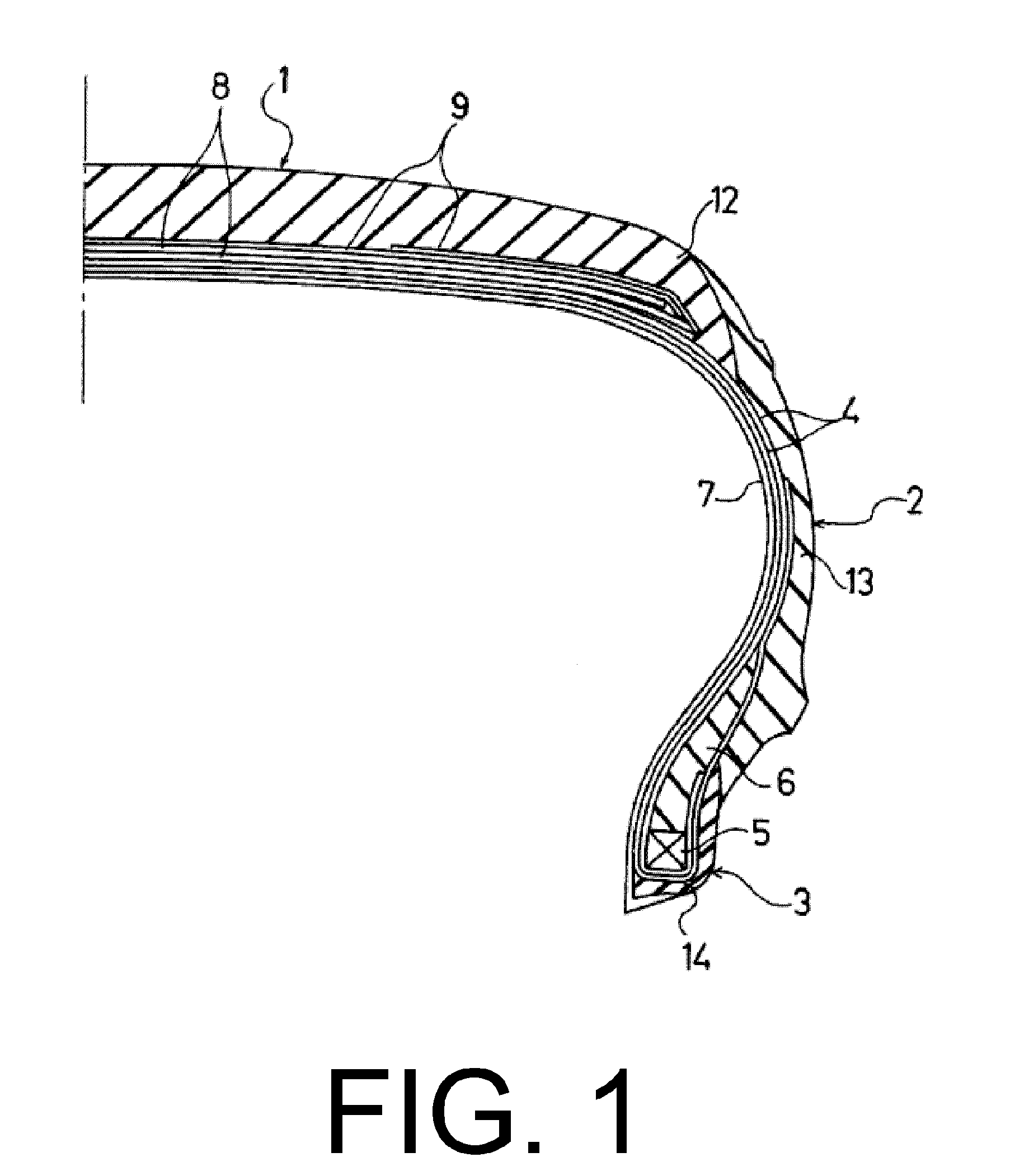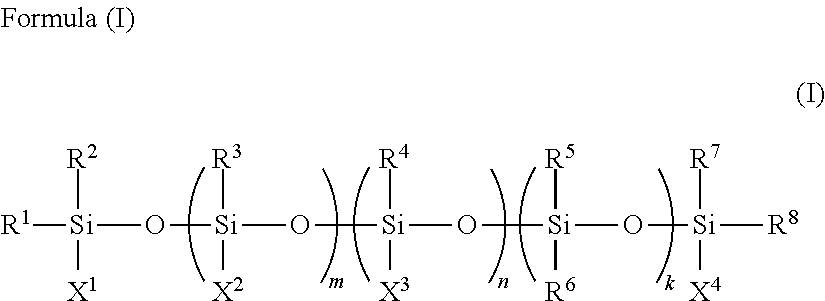Rubber composition for tire tread
a technology of rubber composition and tire tread, which is applied in the direction of special tyres, rolling resistance optimization, transportation and packaging, etc., can solve the problems of poor affinity of silicon with diene rubber, insufficient dispersibility, and the effect of improving low rolling resistance and wet performan
- Summary
- Abstract
- Description
- Claims
- Application Information
AI Technical Summary
Benefits of technology
Problems solved by technology
Method used
Image
Examples
working examples 1 to 7
[0088]24 types of rubber compositions for use in tire treads were prepared according to the formulations shown in Tables 1 to 3 (Working Examples 1 to 7 and Comparative Examples 1 to 17). The shared components shown in Table 4 (with the exception of the sulfur and the vulcanization accelerator) were compounded with the rubber compositions and the mixtures were kneaded in a 1.8 L sealed mixed for five minutes at 160° C. Then, the mixtures were extruded as master batches, to which the sulfur and the vulcanization accelerator were added. Thereafter, the master batches were kneaded on an open roll. Note that in Tables 1 to 3, in cases where the SBR comprises an extension oil, the compounded amount of the SBR comprising this extension oil is noted along with the NET compounded amount of the SBR without the oil in parentheses. Additionally, the contents of the shared components shown in Table 4 are parts by weight compounded per 100 parts by weight of the diene rubber shown in Tables 1 to...
working examples 8 to 23
[0139]46 types of rubber compositions for use in tire treads were prepared according to the formulations shown in Tables 5 to 10 (Working Examples 8 to 23 and Comparative Examples 18 to 47). The shared components shown in Table 4 (with the exception of the sulfur and the vulcanization accelerator) above were compounded with the rubber compositions and the mixtures were kneaded in a 1.8 L sealed mixed for five minutes at 160° C. Then, the mixtures were extruded as master batches, to which the sulfur and the vulcanization accelerator were added. Thereafter, the master batches were kneaded on an open roll. Note that in Tables 5 to 10, in cases where the SBR comprises an extension oil, the compounded amount of the SBR comprising this extension oil is noted along with the NET compounded amount of the SBR without the oil in parentheses. Additionally, the contents of the shared components shown in Table 4 are parts by weight compounded per 100 parts by weight of the diene rubber shown in T...
working examples 24 to 31
[0157]23 types of rubber compositions for use in tire treads were prepared according to the formulations shown in Tables 11 to 13 (Working Examples 24 to 31 and Comparative Examples 48 to 62). The shared components shown in Table 4 (with the exception of the sulfur and the vulcanization accelerator) above were compounded with the rubber compositions and the mixtures were kneaded in a 1.8 L sealed mixed for five minutes at 160° C. Then, the mixtures were extruded as master batches, to which the sulfur and the vulcanization accelerator were added. Thereafter, the master batches were kneaded on an open roll. Note that in Tables 11 to 13, in cases where the SBR comprises an extension oil, the compounded amount of the SBR comprising this extension oil is noted along with the NET compounded amount of the SBR without the oil in parentheses. Additionally, the contents of the shared components shown in Table 4 are parts by weight compounded per 100 parts by weight of the diene rubber shown i...
PUM
| Property | Measurement | Unit |
|---|---|---|
| specific surface area | aaaaa | aaaaa |
| specific surface area | aaaaa | aaaaa |
| weight | aaaaa | aaaaa |
Abstract
Description
Claims
Application Information
 Login to View More
Login to View More - R&D
- Intellectual Property
- Life Sciences
- Materials
- Tech Scout
- Unparalleled Data Quality
- Higher Quality Content
- 60% Fewer Hallucinations
Browse by: Latest US Patents, China's latest patents, Technical Efficacy Thesaurus, Application Domain, Technology Topic, Popular Technical Reports.
© 2025 PatSnap. All rights reserved.Legal|Privacy policy|Modern Slavery Act Transparency Statement|Sitemap|About US| Contact US: help@patsnap.com



